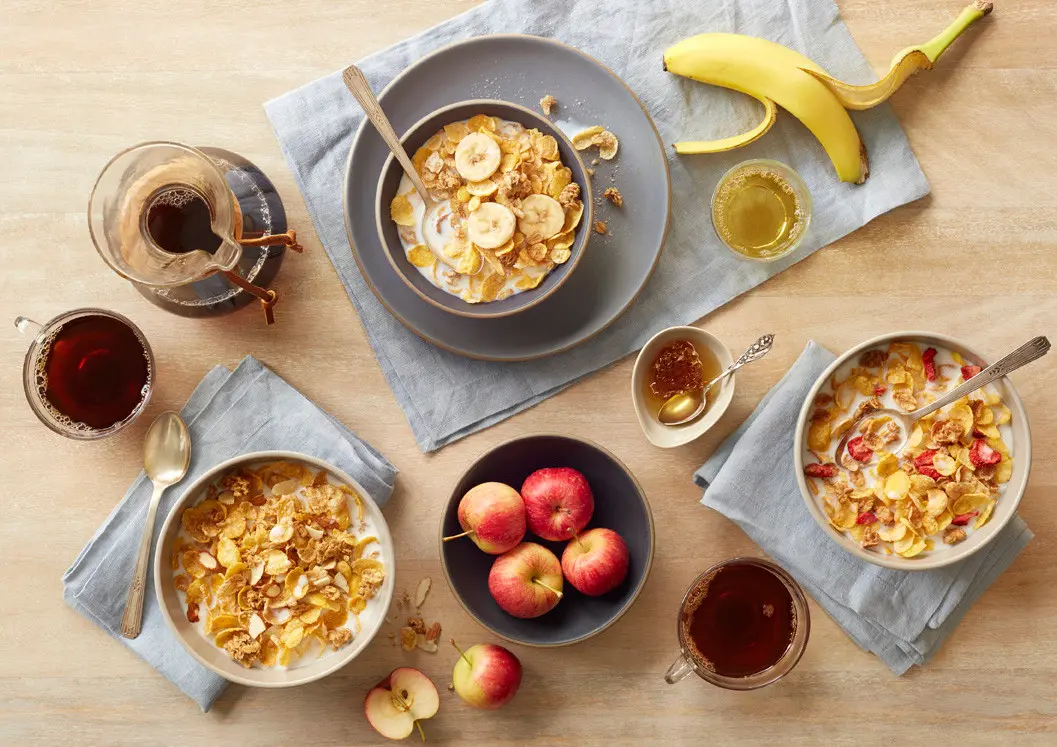How to read Post’s cereal nutrition facts label
Ready-to-eat (RTE) cereal nutrition facts panels are developed to comply with all Food & Drug Administration (FDA) labeling requirements. These requirements paired with our research to understand what cereal lovers want to know about the nutritional value of their breakfast cereal, have led to the user-friendly labels that you see on our cereal packaging.
Our graphic below breaks down how to read the Nutrition Facts panel found on our cereal products.
FDA has standardized the product serving sizes to make it easier to compare similar foods. RTE cereal serving sizes are calculated based on the weight per cup of the cereal, and there are three serving reference amounts for RTE cereal under the current FDA guidelines.
In addition, the serving size information is in bold print for easier reading and features both common household measures, such as a cup, as well as the weight of the serving in grams.
Calories are a measure of the energy that is provided in each serving. The type size for “calories” is large and highlighted in bold to make the information prominent and easier to locate. Balancing the amount of calories consumed each day is an important part of maintaining body weight.
There are two lines on the label dedicated to sugar. One lists the product’s total sugars (including naturally occurring sugar, such as in raisins). The other shows added sugars for easy comparison and differentiation.
Daily values are set by FDA based on current dietary guidelines and nutrition research. The daily values in the nutrition panel show the percent of the daily value provided per serving—5% or less of a nutrient is considered low, while 20% or more of a nutrient is considered high.
To learn more about current criteria for Nutrition Facts Label, you can visit the FDA website.
To learn more about the changes to the Nutrition Facts Label, you can visit the FDA website.
Have specific questions about the nutritional value of Post® cereals? Visit our FAQ page for more details.
Food claim glossary
In our commitment to transparency, we present a glossary to help you understand the different product claim badges you’ll find on our products:

Products labeled “Organic” most often adhere to the United States Department of Agriculture’s (USDA) certified organic standards. To determine the exact organic certification, check your product’s packaging.
This badge indicates that the product has been evaluated on a product-by-product basis according to best practices for genetically modified organisms avoidance, including testing of high risk ingredients, set by the Non-GMO Project organization. It does not necessarily mean the product is healthier or better for you.
Products with this badge provide 20% or more of the recommended daily value for fiber per serving.
A “Heart-Healthy” badge signifies that a product meets the FDA requirements to make this claim, for example the product is low in saturated fat and cholesterol. It may also be low in fat or sodium and will contain at least 10% of the daily value of one or more nutrients: dietary fiber, protein, vitamin D, calcium, iron, potassium, vitamin A or vitamin C.
WIC, or the Special Supplemental Nutrition Program for Women, Infants, and Children, is a U.S. federal assistance program that aims to make nutritious food more accessible to low-income pregnant, postpartum, and breastfeeding women, along with infants and children up to the age of 5. The program provides supplemental foods, nutritional education, and health care referrals to combat nutritional risk and foster better health outcomes.


